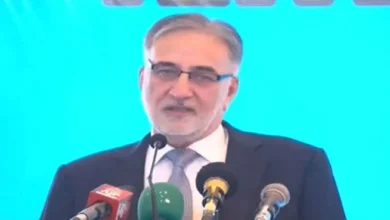Cabinet to Decide Fate of 799 Government Servants on Tuesday
Fate of 799 government servants still unclear

ISLAMABAD: Fate of 799 government servants appointed since 2016 in ministries/divisions without cabinet’s approval still hangs in balance and the next federal cabinet meeting is likely to grant ex-post facto approval ostensibly to resolve the matter.
According to well-informed sources, Cabinet Committee on Institutional Reforms (CCIR) has proposed a way out to federal government to resolve the issue related to the appointment of 799 government servants appointed since 2016 in different ministries/divisions without cabinet’s approval. They said that CCIR has proposed the federal cabinet to regularize such appointments with back dates mainly by granting ex-post facto approval. They said next meeting of cabinet which is scheduled to be held on Tuesday is likely to take final decision in this regard.
Interestingly, Federal Minister of Law and Justice, Mohammad Farogh Naseem earlier made it clear to the cabinet that ratification to such appointments which were made without cabinet’s approval will be in violation of Supreme Court (SC) judgment dated August 18, 2016 in Mustafa Impex case, said sources.
The sources said that there was panic in ministries/divisions due to preparation of a report regarding appointment of 799 government servants appointed since 2016 in ministries/divisions without cabinet’s approval and a possible strict action by the federal government against these government servants currently engaged with various ministries/divisions.
Earlier, PM’s Principal Secretary Azam Khan, in a letter to all federal secretaries and heads of divisions, had directed them to send the lists of appointments without prior approval since 2016 by April 30, so that they could be declared illegal.
Declaring all such appointments which were made without getting the approval of the federal cabinet/government as illegal, void and without jurisdiction, Azam Khan asked the in-charge of all divisions to share this list with the cabinet secretary who will present it before the federal cabinet on May 5.
“ The list shall, inter alia, include all such appointments also which were made pursuant to the delegated powers of the Federal Cabinet to a Federal Minister/Secretary, being illegal, void and without jurisdiction,” reads letter of Secretary to the Prime Minister dated April 24, 2020.
The decision was previously also validated by the Islamabad High Court (IHC), which had declared such appointments as “without jurisdiction and void”.
Islamabad High Court, in ICA No.36/2020, vide judgment dated April 23, 2020, has held as follows: “We have no doubt in our minds that the reappointment of Respondent No. 1 as Member and Chairperson and the initial appointments of Respondent No.2 and Respondent No.3 were not made by the Federal Government as explicitly provided under the Act of 2010 and, therefore, they were without jurisdiction, void and non-est.”
Documents available with this scribe/News 360 disclosed that a committee comprising Secretary, Establishment Division, Additional Secretary, Cabinet Division, and Additional Secretary, Law and Justice Division was formed to identify irregular appointments in the federal government since 2016. And, this committee, after scrutiny of available record, identified 799 irregular appointments. Out of 799 irregular appointments, 500 cases were related to the Airport Security Force (ASF), Aviation Division, whereas 299 cases related to different other divisions/departments.
Documents also transpired that Establishment Division had recommended CCIR to consider that the 500 cases of ASF (except for the position of Director General, ASF) relate to regular appointments in BS 17, 18, 19 etc. as ASG Act 1975 provides that the appointment would be made with the approval of federal government which may be ratified. Similarly, Aviation Division should get the ASF Act 1975 amended so as to unburden the federal cabinet from making regular appointments in BS 17 and above. However, position of DG ASF may be kept within the purview of federal cabinet. Likewise, each division should scrutinize individual cases and move summary for ex-post facto approval of cases relating to respective division and the division must ensure that there are no procedural lapses and malafide involved in the appointment and if any such issues are present, then the concerned division should inquire the matter and take action as per the law while the division must ensure that there is no inquiry/investigation/reference in any law enforcement agency and /or anti-graft body like NAB, FIA against any of the said appointments or appointees.
More, a summary for ex-post facto approval of all such appointments will be moved in consultation with the concerned division/organization. The initial appointments of appointees who are still serving may be revisited by the respective divisions on case to cases basis and after due diligence, move a summary for cabinet for ratification of the appointments, and recommended further retention of their services or otherwise as the case may be. Furthermore, establishment division recommended that all division must exercise vigilance so that appointments are made only by the competent appointing authority even in cases of look after charge, additional charge, acting charge, current charge etc.
It is pertinent to mention that the Supreme Court of Pakistan, in its judgment reported as PLD 2016 SC 808 (Mustafa Impax case) dated 18th August 2016, had declared that the federal government included the Prime Minister and his or her Cabinet.
The PM, or any other minister/secretary, cannot exclusively and solely represent the federal government, and whenever any law requires that a decision be made by the federal government, then it should be the decision of the cabinet.




6 Comments